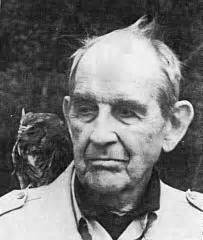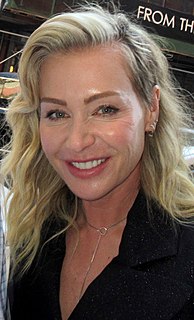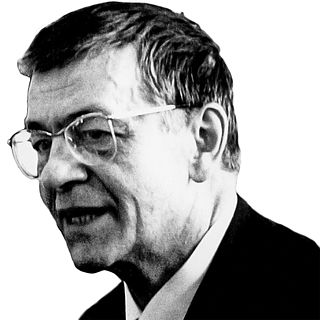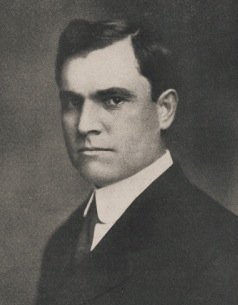A Quote by Andrew Dickson White
The young man [Turgot] destined for an ecclesiastical career was placed within walls carefully designed to keep out all currents of new thought; his studies, his reading, his professors, his associates, all were combined to keep from him any results of observation or reflection save those prescribed: probably, of all means for stifling healthy and helpful thought, a theological seminary, as then conducted whether Catholic or Protestant, Jewish or Mohammedan, was the most perfect.
Quote Topics
Any
Associates
Career
Carefully
Catholic
Combined
Currents
Designed
Destined
Healthy
Helpful
Him
His
Jewish
Keep
Man
Means
Most
New
New Thought
Observation
Out
Perfect
Placed
Professors
Protestant
Reading
Reflection
Results
Save
Seminary
Stifling
Studies
Then
Theological
Those
Thought
Walls
Were
Whether
Within
Young
Young Man
Related Quotes
How very seldom do you encounter in the world a man of great abilities, acquirements, experience, who will unmask his mind, unbutton his brains, and pour forth in careless and picturesque phrase all the results of his studies and observation; his knowledge of men, books, and nature. On the contrary, if a man has by any chance an original idea, he hoards it as if it were old gold; and rather avoids the subject with which he is most conversant, from fear that you may appropriate his best thoughts.
You can t, in sound morals, condemn a man for taking care of his own integrity. It is his clear duty. And least of all can you condemn an artist pursuing, however humbly and imperfectly, a creative aim. In that interior world where his thought and his emotions go seeking for the experience of imagined adventures, there are no policemen, no law, no pressure of circumstance or dread of opinion to keep him within bounds. Who then is going to say Nay to his temptations if not his conscience?
Men in all societies possess the biological equipment to remove their hats or shoes, but it is the birth within a particular culture that decides that a Jew will keep his hat and shoes on in his place of worship, a Mohammedan will take off his shoes, and a Christian will keep his shoes on but remove his hat.
What makes a free thinker is not his beliefs, but the way in which he holds them. If he holds them because his elders told him they were true when he was young, or if he holds them because if he did not he would be unhappy, his thought is not free; but if he holds them because, after careful thought, he finds a balance in their favor, then his thought is free, however odd his conclusions may seem.
As man reaches out toward the twenty-first century, he will learn to be suspicious of all ideas that are not formulated so that they can be tested by observation. He will realize that the history of human thought shows that the ideas of which we are surest are the ones we most need to test. He will realize that his common sense only mirrors his training and experience. What seems natural and right to him is usually a reflection of the conditions under which he spent his first decade of life.
I could tell by his expression that once he got over his anger at me for keeping this secret from him, there was nothing left to talk about. He wasn't confused. He didn't need questions answered. He didn't ask why or how or with whom or whether I thought maybe it might just be a phase. He didn't ask who knew and who didn't know or whether I thought it might ruin my career. I was his sister and he didn't care whether I was straight or gay; it simply didn't matter to him.
Samuel Beckett is the person that I read the most of - certainly the person whose books I own the most of. Probably 800 or 900, maybe 1,000 books of just Samuel Beckett. By him, about him, in different languages, etc. etc. Notebooks of his, letters of his that I own, personal letters - not to me, but I bought a bunch of correspondence of his. I love his humor, and I'm always blown away by his syntax and his ideas. So I keep reading those.
A man is reputed to have thought and eloquence; he cannot, for all that, say a word to his cousin or his uncle. They accuse his silence with as much reason as they would blame the insignificance of a dial in the shade. In the sun it will mark the hour. Among those who enjoy his thought, he will regain his tongue.
Man finds his pathways: at first they were foot-tracks, as those of the beast in the wilderness; now they are swift and invisible: his thought dives through the ocean, and his wishes thread the air: has he found all the pathways yet? What reaches him, stays with him, rules him: he must accept it, not knowing its pathway.
We're all so clogged with dead ideas passed from generation to generation that even the best of us don't know the way out We invented the Revolution but we don't know how to run it Look everyone wants to keep something from the past a souvenir of the old regime This man decides to keep a painting This one keeps his mistress He [ pointing ] keeps his garden He [ pointing ] keeps his estate He keeps his country house He keeps his factories This man couldn't part with his shipyards This one kept his army and that one keeps his king
There is a note that comes into the human voice by which you may know real weariness. It comes when one has been trying with all his heart and soul to think his way along some difficult road of thought. Of a sudden he finds himself unable to go on. Something within him stops. A tiny explosion takes place. He bursts into words and talks, perhaps foolishly. Little side currents of his nature he didn't know were there run out and get themselves expressed. It is at such times that a man boasts, uses big words, makes a fool of himself in general.
If you can impress any man with an absorbing conviction of the supreme importance of some moral or religious doctrine; if you can make him believe that those who reject that doctrine are doomed to eternal perdition; if you then give that man power, and by means of his ignorance blind him to the ulterior consequences of his own act,-he will infallibly persecute those who deny his doctrine.








































